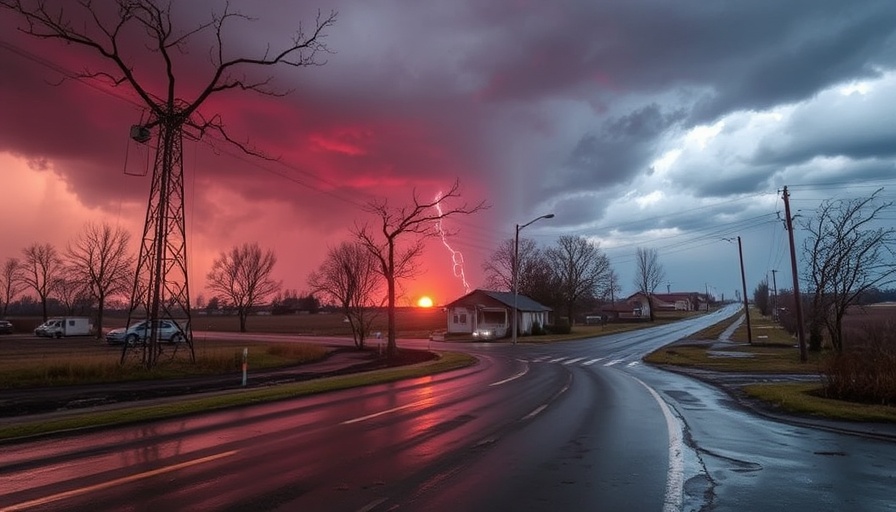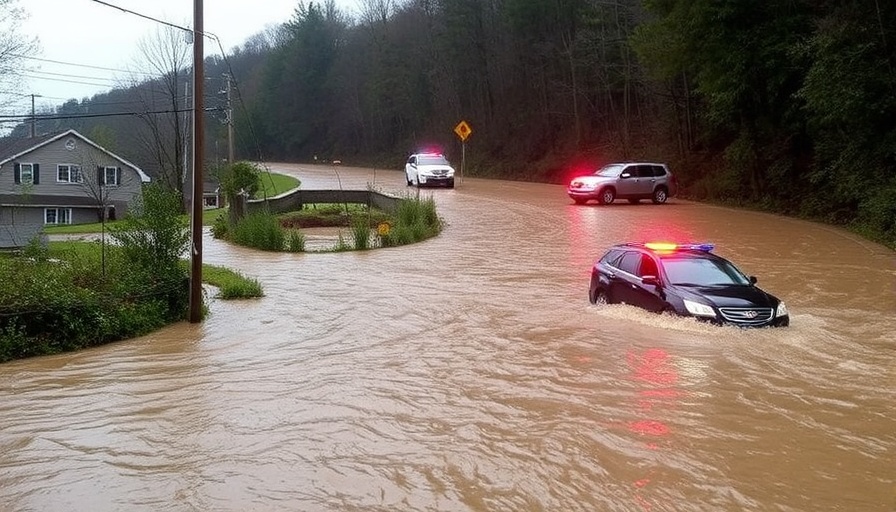
Climate Change's Impact on Severe Weather
The catastrophic storms in early April that swept across the central Mississippi Valley demonstrate a stark reality: our changing climate is directly influencing the severity and frequency of extreme weather events. According to a recent study published by a leading coalition of climate scientists, human-induced climate change has significantly amplified the likelihood and impact of rainstorms, making what happened last month a painful example of this growing crisis.
History of Severe Storms in the Region
Historically, the Mississippi Valley is no stranger to severe weather. This April storm is just the latest in a series of destructive climate-driven events, including Hurricane Helene in September, which claimed hundreds of lives mostly due to flooding. As environmental conditions worsen, data indicates that similar storms are predicted to become even more common. Current climate conditions made this storm at least 40% more likely—an alarming statistic for residents and potential homebuyers in the region.
The Consequences of Inaction
This month's storm is not merely a localized incident; it underscores a broader issue of climate inaction that affects everyone. With record economic losses estimated between $80 billion and $90 billion, the repercussions are felt far and wide, affecting real estate markets, insurance costs, and community stability. As average temperatures rise, potential buyers in Dumfries and similar areas must consider whether their future homes can withstand such extreme weather.
Awareness and Preparedness: The Role of Forecasting
Thanks to proactive measures by the National Weather Service (NWS), loss of life could have been more devastating. Their issuance of over 728 warnings—one of the highest on record—ensured that emergency resources were mobilized quickly and residents received timely evacuations. However, looming budget cuts threaten this vital service, risking future public safety efforts. Community preparedness is essential; local stakeholders should take notice to enhance emergency plans to protect property investments.
Embracing Sustainable Practices
Given the undeniable impact of climate change on extreme weather, now is the critical time for homebuyers and property managers to consider sustainable practices in their renovation and construction projects. Designing homes with eco-friendly materials and adopting energy-efficient technologies not only helps in reducing individual carbon footprints but also increases property value in a market increasingly sensitive to climate considerations. This shift can lead to a new standard in real estate where sustainability becomes a prime factor.
The Future of Home Purchasing Amidst a Changing Climate
As storms become more intense and frequent, the landscape of real estate will undergo significant transformations. Homebuyers and sellers need to be aware of the potential risks of their investments. If fossil fuel reliance remains unchecked, experts warn similar storm events will only increase. Moving towards renewable energy sources at a faster pace could mitigate some of these severe impacts. A transition aligned with the conservation of our climate promises a future where homes can be both beautiful and resilient.
In this light, potential homeowners in Dumfries should re-evaluate their priorities, considering how climate change may affect their investment choices. Your home is not just a place to live; it's also a long-term investment in your future.
Call to Action: Embrace the opportunity to create eco-friendly and sustainable living spaces. Look for best practices, engage with local environmental organizations, and ensure your next property investment aligns with a greener future.
 Add Row
Add Row  Add
Add 





 Add Row
Add Row  Add
Add 








Write A Comment